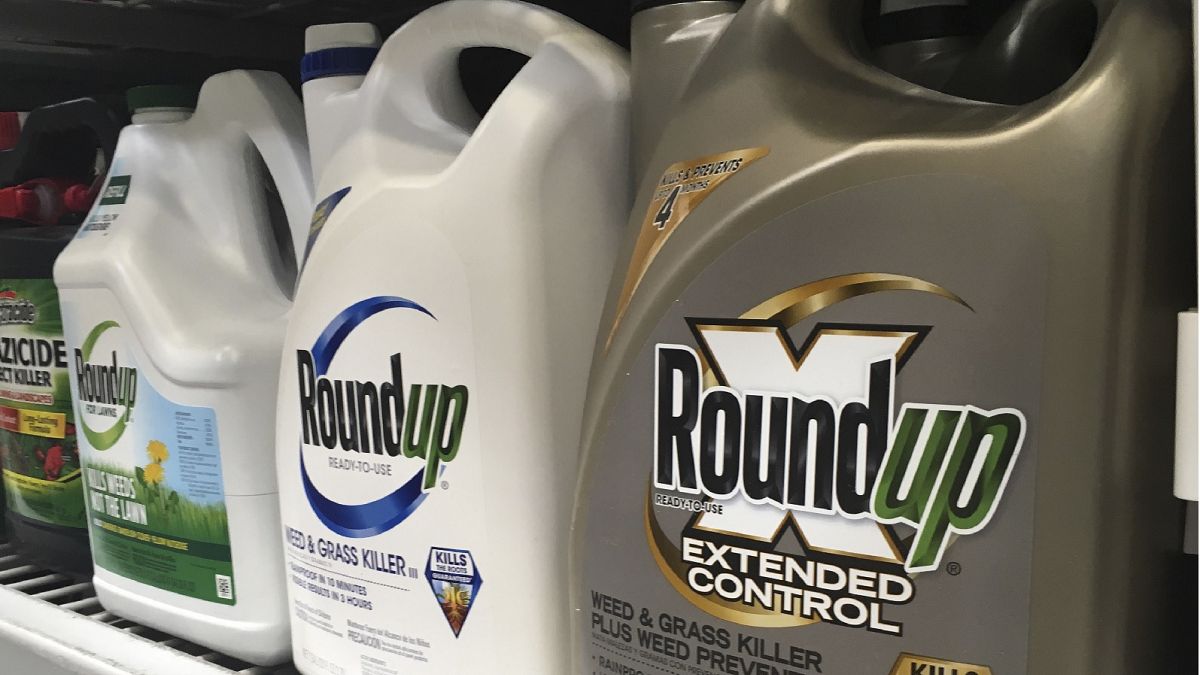The European Commission announced on Thursday that it is approving the use of the controversial chemical substance glyphosate across the European Union for another decade after member states failed to reach an agreement.
"The Commission, based on comprehensive safety assessments carried out by the European Food Safety Authority (EFSA) and the European Chemicals Agency (ECHA), together with EU Member States, will now proceed with the renewal of the approval of glyphosate for a period of 10 years, subject to certain new conditions and restrictions," it said in a statement.
"These restrictions include a prohibition of pre-harvest use as a desiccant and the need for certain measures to protect non-target organisms," it added.
The EU executive was granted the power to approve its own proposal after experts from member states on Thursday morning failed, for the second time, to reach a qualified majority in favour or against the plan first presented in September.
This came after the EFSA said in a July assessment that it had found "no critical areas of concern" for the renewal of use beyond 15 December, when the current five-year approval was due to expire.
The decision to use glyphosate at the national level remains, however, in the hands of each individual government.
No EU country has a blanket ban on glyphosate although some, including Austria, France, the Netherlands, Belgium, Luxembourg and Germany, have rolled out partial bans by prohibiting its use in certain areas or by households.
'Alarming evidence'
Glyphosate is a herbicide introduced in the 1970s and used to eliminate weeds that invade agricultural crops and public spaces. It has been a source of controversy since the World Health Organization's cancer agency concluded in 2015 that it was probably carcinogenic to humans.
The Commission reiterated in its latest communiqué that the EFSA screened 16,000 published studies, 2,000 of which were considered potentially relevant, as well as 300 additional studies brought to its attention during the public consultation phase to deliver its assessment.
It added that if new evidence emerges that indicates that the approval criteria are no longer fulfilled, it would launch a new review and "take action immediately to amend or withdraw the approval if this is scientifically warranted."
But NGO Pesticide Action Network said that the Commission's plans to renew approval on its own would breach the EU Pesticide Law which states that a precautionary principle must be observed when there is no clear scientific consensus over a policy suspected of carrying risk of causing harm to the public or the environment.
"We regret that the Commission turns its back to independent science and citizens’ concerns and plans to re-approve this dangerous herbicide for another 10 years," Angeliki Lysimachou, Head of Science and Policy at Pesticide Action Network Europe, said.
"There is alarming evidence highlighting the cancer risks associated with glyphosate, along with the myriad of other reported adverse effects," she also said.
The Health and Environment Alliance (HEAL), another environmental NGO, said in reaction that "this new failure to garner a member states’ majority in favour of a 10-year renewal of glyphosate shows that it has become politically impossible to ignore the state of the science."
"It is unacceptable that the Commission still plans to go ahead with its proposal considering the amount of scientific evidence of the substance’s health impacts and the related suffering," its Chemicals Programme Lead, Natacha Cingotti, added in a statement.
The new conditions and restrictions introduced by the Commission for the use of glyphosate include the prohibition use it as a desiccant — to induce or sustain a state of dryness — and the requirement for member states to enhance their risk assessments to take into account biodiversity including wildlife.
Governments will also have to set maximum application rates based on those risk assessments and risk mitigation measures to ensure that non-target organisms and the environment are protected.
